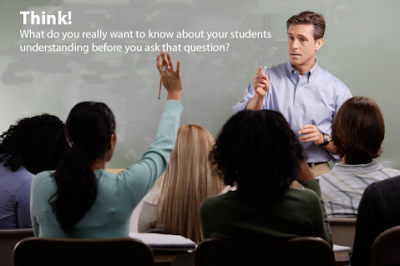 |
| Lets use information technology to fight back against standardization of education - share this blog posting with 5 other teachers who care!! |
By Allan Alach
I welcome suggested articles, so if you come
across a gem, email it to me at allanalach@inspire.net.nz
These two articles by Kelvin Smythe have
rattled a few cages in New Zealand:
For goodness
sake let’s get computer use in perspective
“No matter how
sophisticated the current understanding of computers and school education,
no-one can sensibly predict the various directions computer use in education
will take. What we
should know, and we should hold on to as something real and
solid amidst the ephemeral and flux, is that the fundamentals of children’s
learning – if purposes are humanistic and democratic – remain substantially the
same.”
A response to
the criticism of my criticism of the school that saw art as a distraction to
computer work
“The promise
was that computers would be tools, but now rooms are being built for those
tools, indeed, whole schools, to devastating effect; computers have become
central, and programmes, rooms and schools are being built around them.”
Bruce Hammonds also joined in:
“I have to
agree with Kelvin that the ‘heart, vivacity and substance of curriculum areas’ are
all too often missing in classrooms replaced by an emphasis on technology. It
does seem to me that some teachers are captured by technology and, if this is
the case, such technology is itself a distraction from real learning.”
The following two articles reinforce many
points that Kelvin and Bruce have made:
David Greene: Teachers
or Technology?
“The result?
Instead of technology creating great teaching tools for teachers, teachers
become the tools of technology!”
Technology
Alone Won't Save Poor Kids in Struggling Schools
“Roughly one
in four children in the United States lives in a home without a computer or
Internet access, and this digital divide is often cited as a factor in the
intractable achievement gap between poor students and their well-off peers.
Give these kids a computer, the logic goes, and you may increase their chances
of succeeding in school. Entire philanthropies are built on this idea. But a
jarring new National Bureau of Economic Research working paper concludes
that all of this hardware may have no effect, at least in the short term, on
educational outcomes.”
Moving on:
A big problem
with the Common Core that keeps getting ignored
Marion Brady’s
latest article for the Washington Post. His comment:
campaign. A major one is that the "core"
curriculum in place since 1893 is a solid foundation for instruction and
testing. Below, I explain why I disagree, and in the last sentence provide a
link to others' perception of the problem.”
Current school start times damaging learning and health of students
 “Scientists have found that current school and university start
times are damaging the learning and health of students. Drawing on the latest
sleep research, the authors conclude students start times should be 8:30 or
later at age 10; 10:00 or later at 16; and 11:00 or later at 18. Implementing
these start times should protect students from short sleep duration and chronic
sleep deprivation, which are linked to poor learning and health problems.”
“Scientists have found that current school and university start
times are damaging the learning and health of students. Drawing on the latest
sleep research, the authors conclude students start times should be 8:30 or
later at age 10; 10:00 or later at 16; and 11:00 or later at 18. Implementing
these start times should protect students from short sleep duration and chronic
sleep deprivation, which are linked to poor learning and health problems.”
Contributed by Bruce Hammonds:
Establishing a
Culture of Student Voice
 |
| What do students' think? |
“What firmly
establishes a culture of student voice is giving them charge of how they learn,
including development of assessments and products for learning outcomes.”
Teach Your
Child to Love Learning: Keys to Kids’ Motivation
There are few
things more aggravating to parents than a kid who “doesn’t try.” Whether it’s
math homework, dance class or those guitar lessons they begged for but now
never practice, we want our children to be eager learners who embrace effort,
relish challenges and understand the value of persistence. Too often, what we
see instead is foot-dragging avoidance and whiny complaints of “This is boring!”
How to
separate learning myths from reality
“Bridging the
gap between popular neuromyths and the scientific insights gathered in the past
few
decades is a growing challenge. As modern brain-imaging techniques, such as
functional magnetic resonance imaging (fMRI), have advanced scientific
knowledge, these misleading lay interpretations by business practitioners have
advanced as well. Unless such misconceptions are eliminated, they will continue
to undermine both personal- and organizational-learning efforts.”
An open letter
to all educators…
“There is a
vicious epidemic that has been spreading and continues to spread unchecked
across the globe. The achievement gap that is so often spoken of is merely a
cover for what is really happening.
We don't have
an achievement gap, we have an opportunity gap…”
Why the
conventional wisdom on schooling is all wrong
I thought I’d
posted this article by Marion Brady before but apparently not.
“Delivering
information isn’t the problem. Kids are drowning in information, and oceans
more of it is at their fingertips ready to be downloaded. What they need that
traditional schooling has never
given them and isn’t giving them now isn’t
information, but information processing skills. They need to know how to
think—how to select, sort, organize, evaluate, relate, and integrate
information to turn it into knowledge, and knowledge into wisdom.”
When Did 19th
Century Learning Become So Trendy? (8 Old Ideas That Are Actually Pretty Innovative)
“People mocked
non-techie projects and now it's "we really need hands-on Maker
Spaces." Five years ago, I watched techies on Twitter saying, "Note
taking is dumb when you can just Google it." Now everyone is posting about
the power of sketch-noting. Suddenly mural projects and theater productions are
okay again, since we added an A into STEM; or as I like to call it
"MEATS." I want a MEATS Lab. Maybe it's time we abandon the idea that
certain education practices are outdated and realize that learning is timeless
and sometimes some of the best ideas are buried under the industrial carpet of
factory schools.”
From Bruce’s ‘goldie oldies’ file:
Group work and learning styles
“…if we want all students to realise
their full potential ( usually written into every school's
charter) then their
individual talents and styles need to be recognised. A standardized system 'one
size fits all' does not fit anyone. All too often school failures are students
whose learning styles have been ignored or neglected.”
http://bit.ly/1WiEUfO
 |
| Time to escape our top down standardized boxes! Lets value and share ideas of creative teachers. Share this blog with five others. |










































